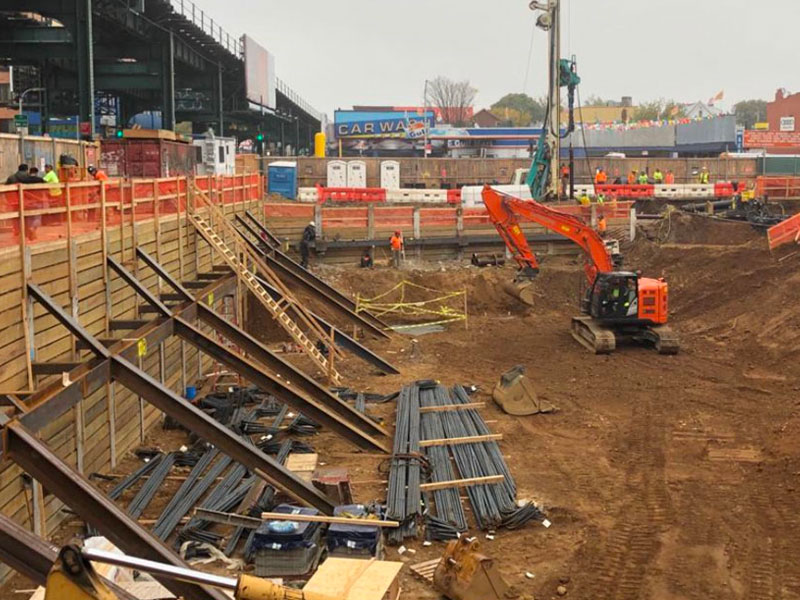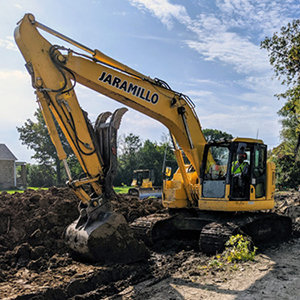Residential Excavating Ohio - Specialized Excavation for Ohio Homes
Residential Excavating Ohio - Specialized Excavation for Ohio Homes
Blog Article
Comprehensive Excavation Approaches: Understanding the Principles for Success
The cautious preparation, precise execution, and careful interest to information needed in excavation tasks require a comprehensive approach that incorporates various essential facets. The true proficiency lies not simply in comprehending these principles yet in effortlessly integrating them to browse the intricacies of excavation projects with skill.
Understanding Excavation Job Planning

The initial stage of any excavation task is the preparation phase, where crucial choices are made that can significantly impact the outcome of the project. Comprehending the job range, budget plan, and timeline restrictions is crucial for developing a detailed excavation plan that guarantees the project's success.
One trick facet of excavation project preparation is the growth of a thorough timeline that outlines the sequence of turning points, target dates, and activities. By thoroughly taking into consideration all these aspects throughout the planning phase, excavation projects can be carried out efficiently and successfully, leading to successful results - dump truck companies in ohio.
Soil Evaluation and Website Evaluation
Carrying out comprehensive dirt evaluation and site assessment is a crucial action in the preparation stage of any kind of excavation job. Soil analysis involves establishing the make-up, framework, and properties of the dirt at the excavation site. This info is critical for understanding the dirt's bearing capacity, moisture content, and capacity for erosion, which are key consider identifying the excavation methods and devices needed for the job.
Site examination exceeds soil analysis and incorporates a more comprehensive assessment of the overall website problems. This analysis includes identifying any potential dangers, such as below ground energies, ecological concerns, or unsteady terrain, that might influence the excavation procedure. By thoroughly evaluating the site, job supervisors can create reliable excavation approaches that prioritize security, efficiency, and environmental management.
Making use of advanced technologies like ground-penetrating radar, dirt sampling, and drone surveys can boost the precision and effectiveness of soil evaluation and website examination. Spending time and resources in these preliminary steps can ultimately conserve time and avoid costly hold-ups or issues during the excavation process.
Devices Choice and Usage
Effective excavation tasks depend greatly on tactical devices selection and use to guarantee optimal efficiency and productivity. Picking the best equipment for the work is critical in optimizing efficiency and decreasing downtime. Aspects such as the sort of soil, depth of excavation, and task scope play a substantial role in establishing the most ideal equipment for the task at hand.

Along with choosing the suitable equipment, appropriate usage is crucial to task success. Operators needs to be educated to take care of the tools securely and effectively - lancaster excavation. Regular upkeep checks and prompt repairs aid protect against failures and make certain constant efficiency throughout the job
Precaution and Rules Conformity
In the world of excavation tasks, focusing on precaution and conformity with guidelines is extremely important to ensuring a safe and secure and legitimately sound operational environment. Safety and security procedures encompass a variety of techniques, including conducting comprehensive website analyses, carrying out appropriate signs and barriers, and providing ample security training for all personnel associated with the excavation process. Adherence visit site to regulations, such as OSHA demands in the United States, makes certain that the excavation task meets the essential requirements to protect employees, onlookers, and the surrounding environment.

Monitoring Progress and Adjusting Approaches
How can predict managers efficiently track the development of excavation projects and adjust their techniques appropriately to optimize outcomes? Monitoring progress is crucial for making sure that excavation tasks stay on track and satisfy target dates.

Final Thought
Finally, understanding the basics of extensive excavation strategies is crucial for the success of any type of project. By understanding job planning, examining soil and website conditions, picking proper equipment, abiding by security laws, and checking progress, task managers can make sure a reliable and smooth excavation process. Carrying out these techniques will certainly lead to effective try this outcomes and reduce possible risks or obstacles during the excavation job.
The initial phase of any kind of excavation project is the planning phase, where critical decisions are made that can significantly affect the end result of the project. Comprehending the task budget, range, and timeline restraints is essential for producing a thorough excavation plan that guarantees the job's success.
Just how can predict supervisors effectively track the improvement of excavation jobs and adjust their approaches accordingly to optimize outcomes? By closely keeping track of progression and being ready to adjust approaches, project supervisors can improve the total success of excavation projects.
By comprehending task preparation, assessing dirt and website problems, choosing proper tools, conforming with security guidelines, and checking progression, job managers can guarantee a smooth and effective excavation process.
Report this page